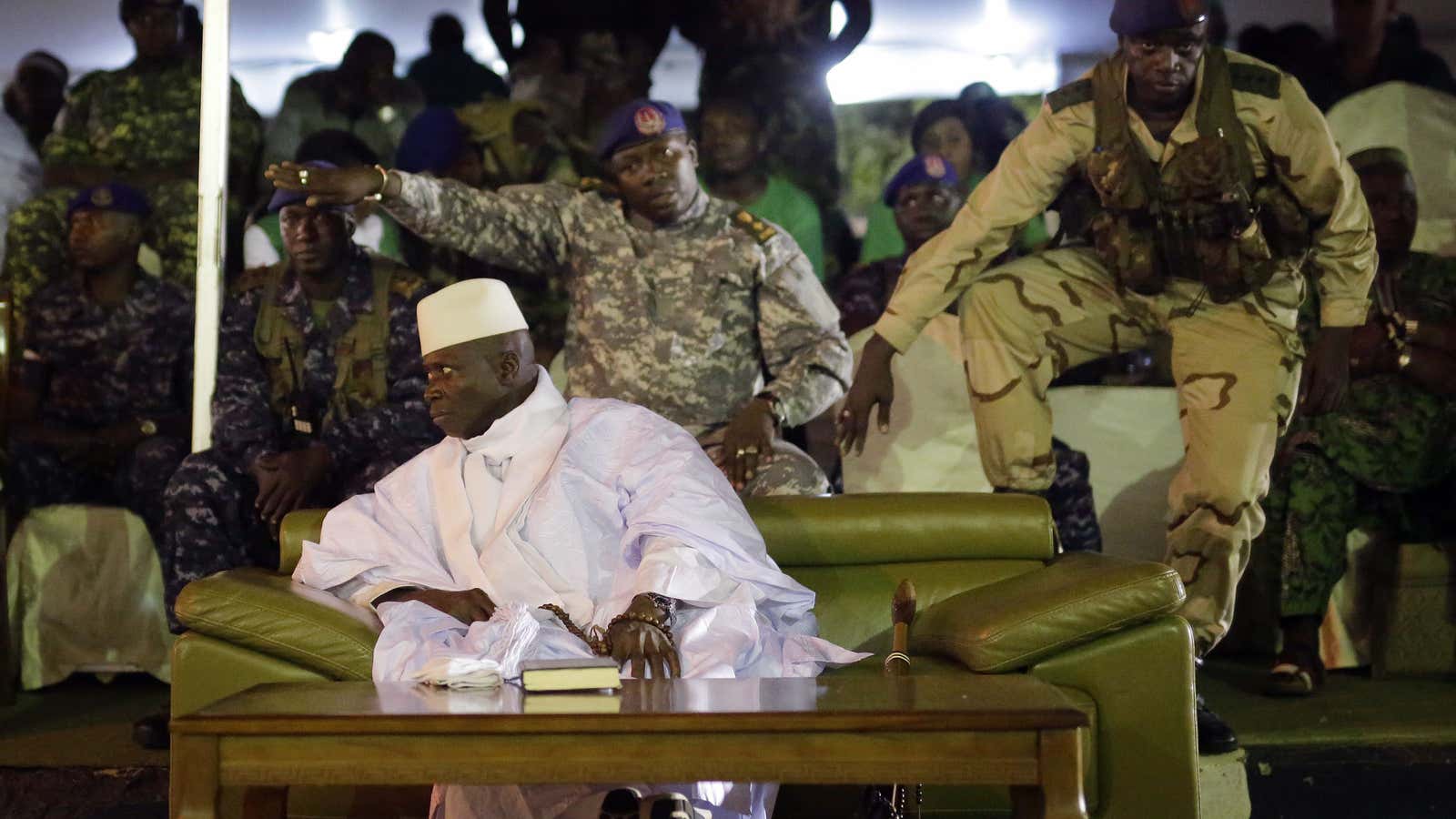Gambians are unlikely to get a new president any time soon, despite having voted for one last month.
The country in December elected real estate businessman Adama Barrow to be its new leader. After initially accepting the results of the election, long-time president Yahya Jammeh rejected them a week later in a remarkable turnaround. Jammeh, who has led The Gambia for 22 years, claims the elections were tainted by anomalies—even though he’d previously described the country’s marble-based voting system as “fraud-proof“—and filed a petition with The Gambia’s supreme court contesting the results.
But there’s a snag: the court does not have enough sitting justices, and has delayed hearing the petition until May to appoint more—that is, four months after president-elect Barrow is due to be inaugurated on Jan. 19. Jammeh insists he will remain in office until a ruling is provided by the court, saying his position is backed by the constitution. ”Only the Supreme Court can review our challenge and only the Supreme Court can declare anyone president,” he said in a national broadcast on Jan. 10.
Following the elections, Jammeh derided criticism by regional bodies like the Economic Community Of West African States (ECOWAS) and the African Union of his decision to hang on to power. ECOWAS leaders attempted to mediate a peaceful handover of power following Jammeh’s rejection of the results, but have also said that military force could be an option if the president refuses to step down. Jammeh has insisted the Gambian army will resist ECOWAS’ troops if they try to intervene.
Despite his tough talk, Jammeh may be more disposed to maintaining peace now compared to the days immediately following the elections. Since then, on the advice of the chief justice, the president has appointed a mediator to facilitate meetings with “all parties to resolve any mistrust and issues.” Jammeh has also asked lawmakers to draft an amnesty bill for citizens arrested for protesting during the elections to help “restore a climate of confidence and security.”
The more conciliatory rhetoric from Jammeh comes as ECOWAS leaders head to The Gambia tomorrow (Jan. 13) for talks on how to foster a peaceful transition.
